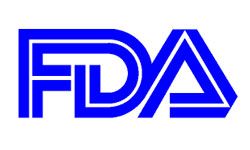FDA Aims To Include More Male Patients in Breast Cancer Clinical Trials With New Industry Guidelines
The FDA has drafted new industry recommendations for sponsors to encourage male inclusion in clinical trials for breast cancer.<br />

The FDA has drafted new industry recommendations for sponsors to encourage male inclusion in clinical trials for breast cancer.
The industry guidelines, which are still in draft form, pertain to the development and labeling of cancer treatments regulated by the Center for Drug Evaluation and Research (CDER) and Center for Biologics Evaluation and Research (CBER). When finalized, the nonbinding recommendations will not create legal requirements for industry, but are instead intended to indicate the FDA’s preference regarding the development of drugs for men with breast cancer.
“Less than 1% of all breast cancer cases occur in men, but men are more likely to be diagnosed at an older age and have a more advanced stage of disease. As breast cancer in men is rare, they have typically not been included in clinical trials for breast cancer treatment. This has led to a lack of data, so their treatment is generally based upon studies and data collected in women. While some FDA-approved treatments are gender-neutral in their indication, many therapies are only approved for women and further data may be necessary to support labeling indications for men,” Richard Pazdur, MD, director of the FDA’s Oncology Center of Excellence and acting director of the Office of Hematology and Oncology Products in the FDA’s Center for Drug Evaluation and Research, said in a statement.
The draft recommendations are as follows:
- Clinical trials exploring treatments for breast cancer should allow for enrollment of both men and women. When investigators wish to exclude male participants, a scientific rationale should be provided.
- For clinical trials for a breast cancer drug that exclude males or have limited male enrollment, the potential should be explored to “extrapolate findings to include male patients in the FDA-approved indication for the drug where no difference in efficacy or safety is anticipated between males and females based on the mechanism of action of a drug.” However, when additional data are needed to support an indication for male patients, the FDA encourages exploring various practical options to obtain these data, such as small, single-cohort studies and studies that use real-world data sources.
These draft recommendations are now publically available and the FDA is accepting comments on them until October 26, 2019, at which time the agency will commence work on the final draft of the guidance.
“We issued a draft guidance encouraging the inclusion of male patients in breast cancer clinical trials. When finalized, the recommendations in the draft guidance will provide clarity for industry regarding how additional data to support efficacy and safety for male patients with breast cancer can be generated through a variety of trial designs using different data sources, including studies using real-world data,” said Pazdur, “We hope that the recommendations in the draft guidance issued today will, when finalized, encourage drug development for the treatment of male breast cancer and ultimately, provide additional FDA-approved treatment options for patients.”
Reference:
Male Breast Cancer: Developing Drugs for Treatment Guidance for Industry: Draft Guidance. FDA. Published online August 26, 2019. https://bit.ly/2zpohYu. Accessed August 27, 2019..